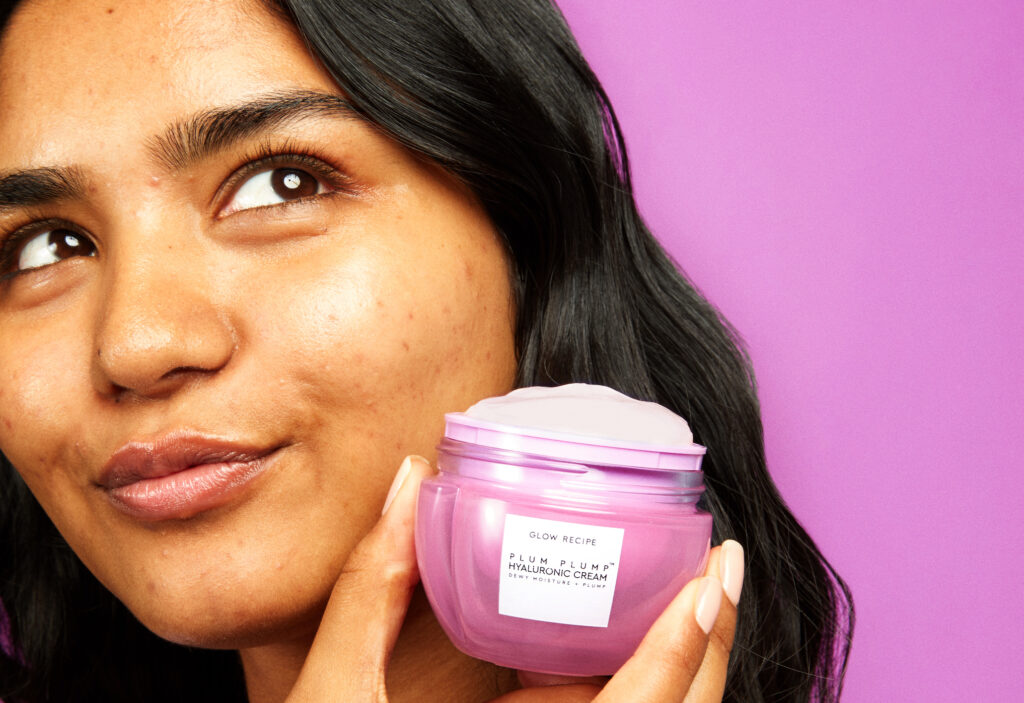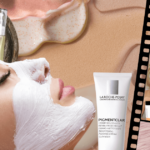
ICYMI: Polyglutamic acid is having a major moment in the skin-care world right now, with editors and experts alike lauding the ingredient as a hydrating MVP. In fact, some are even calling ingredient, which is derived from fermented soybeans, hyaluronic acid 2.0 — however, unlike the hero humectant we know and love, polyglutamic acid is actually a peptide, and a seriously powerful one to boot.
That brings us to the obvious question: What role do peptides play in skin health? Put simply, a pretty big one. Here, get the lowdown on peptides and all the ways they can benefit your complexion; plus, how to incorporate them into your skin-care routine for best results.

What are peptides?
Peptides are a chain of amino acids and are often called the “building blocks” of proteins — specifically, proteins needed by the skin. But how exactly do they work? Take it from New York-based board-certified dermatologist Dr. Marisa Garshick, MD: “When peptides are applied to the skin topically, they provide a signal to the body that healing or recovery needs to take place, and in turn, this actually helps to boost natural collagen production.”
Moreover, Dr. Garshick explains, unlike collagen — which is too large to penetrate the skin topically — peptides are shorter amino acid chains that can penetrate the skin and signal it to boost collagen production. And, as many of us know, collagen plays a critical role in skin health and maintaining its youthful, bouncy appearance. More on that, ahead.
What are the benefits of peptides?
Because peptides support the body’s natural production of collagen, says Dr. Garshick, using them in your skin-care routine can aid in firming and tightening the skin, as well as smoothing the appearance of fine lines and wrinkles. “When peptides are incorporated into skin-care products, they tell your body to produce more collagen — which helps with sagging skin, wrinkles, uneven texture, elasticity and tightening of the skin,” says Dr. Garshick.
What’s more, peptides are generally well-tolerated by all skin types — including sensitive and acne-prone — making them an ideal alternative to other all-star ingredients like retinol. “Peptides may be a good option for those with sensitive skin who can’t tolerate retinoids or other key active anti-aging ingredients,” says Dr. Garshick. “By addressing an array of age-related concerns, peptides aid in restoring an overall youthful appearance to the skin.”

How can I incorporate peptides into my skin-care routine?
It’s safe to say pretty much anyone can benefit from implementing peptides into their skin-care routine — regardless of skin concern or skin type. They’re often found in treatment serums, like the Plump Plump Hyaluronic Serum (sr-Spider Polypeptide-1, to be exact), the Avocado Ceramide Recovery Serum (Palmitoyl Tripeptide-8), and the Guava Vitamin C Dark Spot Serum (Hexanoyl Dipeptide-3 and Norleucine Acetate).
Additionally, you’ll find the peptide polyglutamic acid in the new Plum Plump Hyaluronic Cream, alongside five sizes of hyaluronic acid and ice willowherb, which helps control oil production and supports the skin barrier. Pair it with one of the aforementioned serums for a double dose of peptide-infused goodness — and see the magic of peptides for yourself.
Read more about the best skin-care ingredients:











